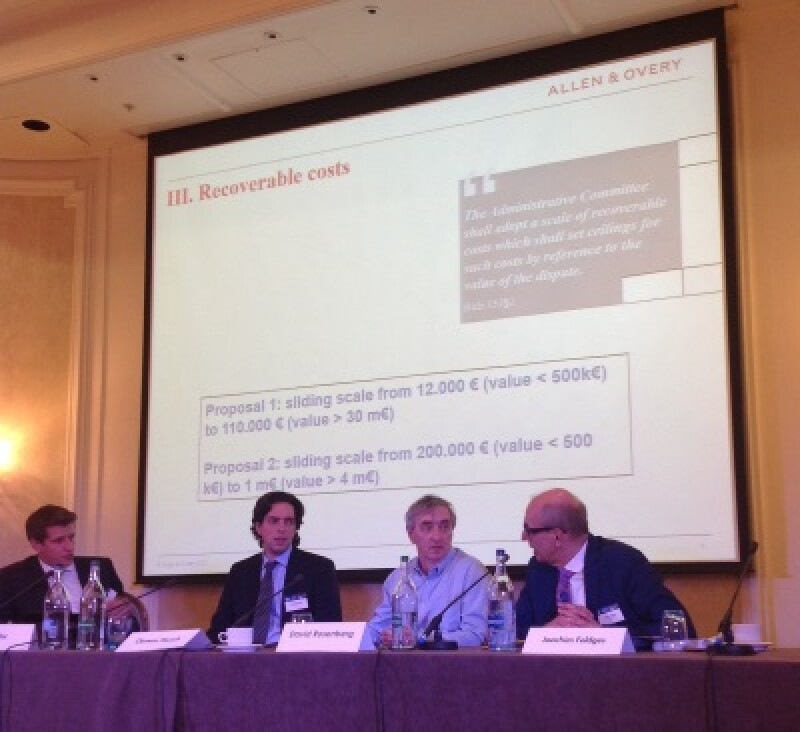
The Forum was opened by Baroness Neville-Rolfe, minister for IP in the UK government, who used her keynote speech to launch the UK IPO’s IP Finance Toolkit. She said the toolkit will help businesses seeking finance and banks who need to recognise the value of IP: “It will assist businesses which are rich in intangibles, but lack traditional assets, to make a stronger case when they need to access the finance they need to grow.” It sounds like a good initiative and we’re interested what those working in business think – let us know once you’ve had a chance to read it.
After her talk, I sat down with Baroness Neville-Rolfe for a short interview, which we will publish shortly. Notably, she told me that she will be visiting the EPO in Munich for the first time next week, to “have a look round” and meet managers including the EPO President Benoit Battistelli. As many readers will know, this visit comes after the EPO has faced strikes and criticism regarding the independence of the Boards of Appeal. Neville-Rolfe did not deny there were difficulties at the EPO, and said she hoped to “help find a way forward” based on “the right culture and objectives, and modern governance”. It sounds like a positive approach, so let’s see what happens next week.

An excellent panel on FRAND and SEP developments yesterday morning was unfortunately interrupted by a fire alarm and evacuation. I’m pleased to report that despite the room being packed, everyone managed to leave in an orderly way and the alarm turned out to be false. After we’d all retaken our seats, speaker Nick Cunningham of Wragge picked up where he had left off, merely noting in passing: “I told you FRAND was a hot topic!”
Maria Engstrand of Valea and Keith Gilman of Lerner David Littenberg Krumholz & Mentlik gave us an update on post-grant and inter-partes review developments in the US, as well as a comparison with opposition proceedings at the EPO. I know this is a topic that will be discussed further at our US Forum next week, but it seems that in Europe at least there remain lots of questions about issues such as the real party-in-interest, estoppel, whether patent drafting should be changed and, in general, how to navigate the new procedures. Or, as moderator Andrew Hammond asked Gilman: “Why should I pay the USPTO $20,000 to the job it should have done properly in the first place?”

The final session of the day was possibly the most entertaining, focusing on the Unified Patent Court. As the speakers said, now that we are getting more of an idea about the likely costs in terms of both renewal fees and court fees (see our article earlier this week - subscription or free trial required), patent owners will soon need to make decisions about whether or not to use the system. When it comes to making such decisions, commentators often draw a distinction between “crown jewel” patents and others, but we have often wondered what to call the “others”. David Rosenberg of GSK suggested “costume jewellery” patents. Do readers have any better suggestions?









